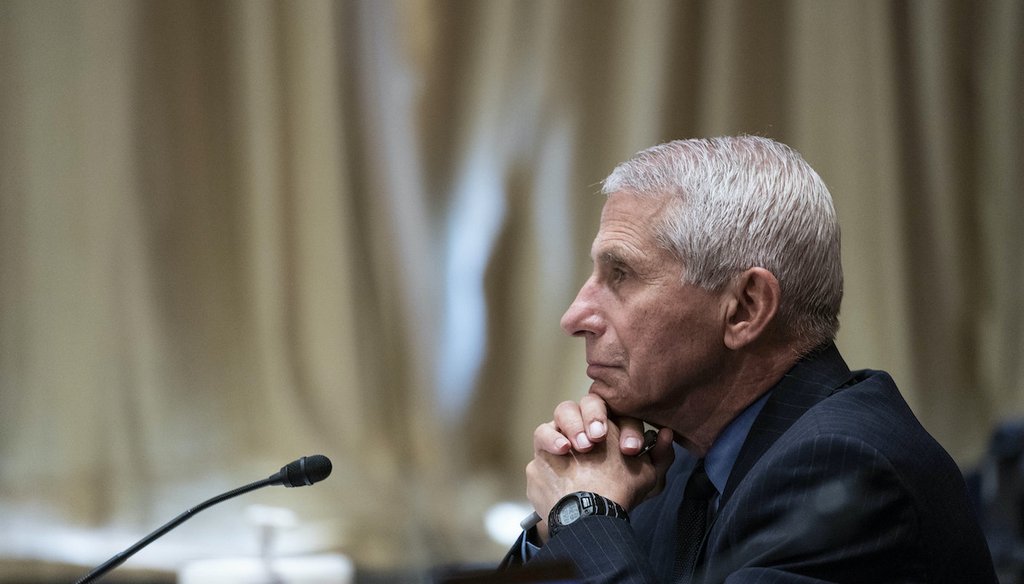



Dr. Anthony Fauci, director of the National Institute of Allergy and Infectious Diseases, listens during a Senate Appropriations Subcommittee, Wednesday, May 26, 2021, on Capitol Hill in Washington. (AP)
The release of thousands of emails sent and received by Dr. Anthony Fauci during the onset of the pandemic has provided new fuel for online misinformation.
A Facebook post from June 2 claims Fauci knew about hydroxychloroquine’s effectiveness against COVID -19. The post is an image of distorted text that is also copied word-for-word in the caption.
"So he (knew) hydroxychloroquine worked … emailed friends about it being effective," it reads.
It then goes on to say the drug should be placed in every shop so that people can "get on with life and pretend this (pandemic) never happened."
The post was flagged as part of Facebook’s efforts to combat false news and misinformation on its News Feed. (Read more about our partnership with Facebook.)
A Facebook post claims Fauci knew about hydroxychloroquine's ability to treat people with COVID-19, referencing emails from the health director obtained by BuzzFeed and the Washington Post.
However, those emails do not show him acknowledging its effectiveness. Instead, it shows him aware of claims being made by other people about the drug and that he’s waiting on the results of a study being conducted on hydroxychloroquine as a possible treatment for COVID-19.
The study was eventually halted after researchers concluded the drug offered no additional benefit for treating the virus.
We rate this claim False.
Facebook post (archived), June 2, 2021
Washington Post, "Anthony Fauci’s pandemic emails: ‘All is well despite some crazy people in this world,’" June 1, 2021
Buzzfeed, "Anthony Fauci’s Emails Reveal The Pressure That Fell On One Man," June 1, 2021
National Institutes of Health, "NIH clinical trial of hydroxychloroquine, a potential therapy for COVID-19, begins," April 9, 2020
PolitiFact, "Why medical experts worry about President Trump touting chloroquine," April 7, 2020
National Institutes of Health, "NIH begins clinical trial of hydroxychloroquine and azithromycin to treat COVID-19," May 14, 2020
National Institutes of Health, "NIH halts clinical trial of hydroxychloroquine," June 20, 2020
Food and Drug Administration, "Coronavirus (COVID-19) Update: FDA Revokes Emergency Use Authorization for Chloroquine and Hydroxychloroquine," June 15, 2020
PolitiFact, "Don’t fall for conspiracy about Dr. Anthony Fauci, hydroxychloroquine," May 6, 2020
PolitiFact, "A social media post using old Fauci email falsely claims that Fauci ‘lied’ about mask wearing," June 2, 2021
PolitiFact, "Video shows outdated face mask guidance from Dr. Anthony Fauci," July 8, 2020
PolitiFact, "Marco Rubio says Anthony Fauci lied about masks. Fauci didn’t," Dec. 28, 2020
In a world of wild talk and fake news, help us stand up for the facts.
